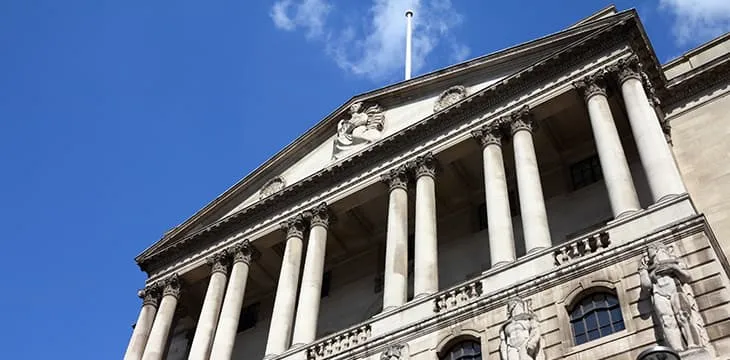|
Getting your Trinity Audio player ready...
|
The Bank of England (BoE) has joined the call for regulating the digital assets market. The central bank said the United Kingdom needs to have “enhanced regulations” for the market even as it continues to grow and potentially poses a greater risk to financial stability.
The statement was conveyed in the BoE’s Financial Stability Report authored by the Financial Policy Committee (FPC) this week. The biannual publication briefly examined the digital assets market, along with the local and global financial market landscape.
It highlighted the “extreme volatility” among digital currencies, including stablecoins. In particular, it noted the sharp drop in market capitalization from almost $3 trillion in late 2021 to around $900 billion at present.
In this period, several vulnerabilities similar to what is obtainable in traditional financial markets were also exposed in the digital assets market. These include liquidity mismatches that exposed bank run dynamics and massive leverage position liquidations in the market.
While conceding that these events did not pose a significant risk to the U.K.’s overall financial stability, they are enough reason to pay close attention to regulating the market, according to the BoE. This is because the continued development of the digital assets market could eventually pose risks to financial stability.
“These events did not pose risks to financial stability overall. But, unless addressed, systemic risks would emerge if cryptoasset activity, and its interconnectedness with the wider financial system, continued to develop. This underscores the need for enhanced regulatory and law enforcement frameworks to address developments in these markets and activities,” the report said.
The central bank says one of its first points of call to provide the needed regulations will be to help consult on the details of HM Treasury’s proposal to introduce a regulatory regime for stablecoins.
The UK’s concerns are on par with those of other countries
The U.K. government has already been working on providing a robust regulatory and law enforcement framework for digital assets. The country’s parliamentary agenda approved by the Queen’s office contains two major bills that will address digital assets regulations as well as give law enforcement new powers over the market.
Significantly, the U.K. is not alone in its stance on the potential for digital assets growth to pose stability risks if unchecked. The Financial Stability Report published by the Reserve Bank of India (RBI) also noted similar sentiments.
While India’s policy direction for digital assets regulation is considered highly unfavorable, the U.K. has stated that it intends to become a global digital assets hub, as reported by the Financial Times.
Watch: The BSV Global Blockchain Convention panel, Blockchain for Government Data & Applications
https://youtu.be/ggbZ8YedpBE?t=30603

 09-14-2025
09-14-2025 





